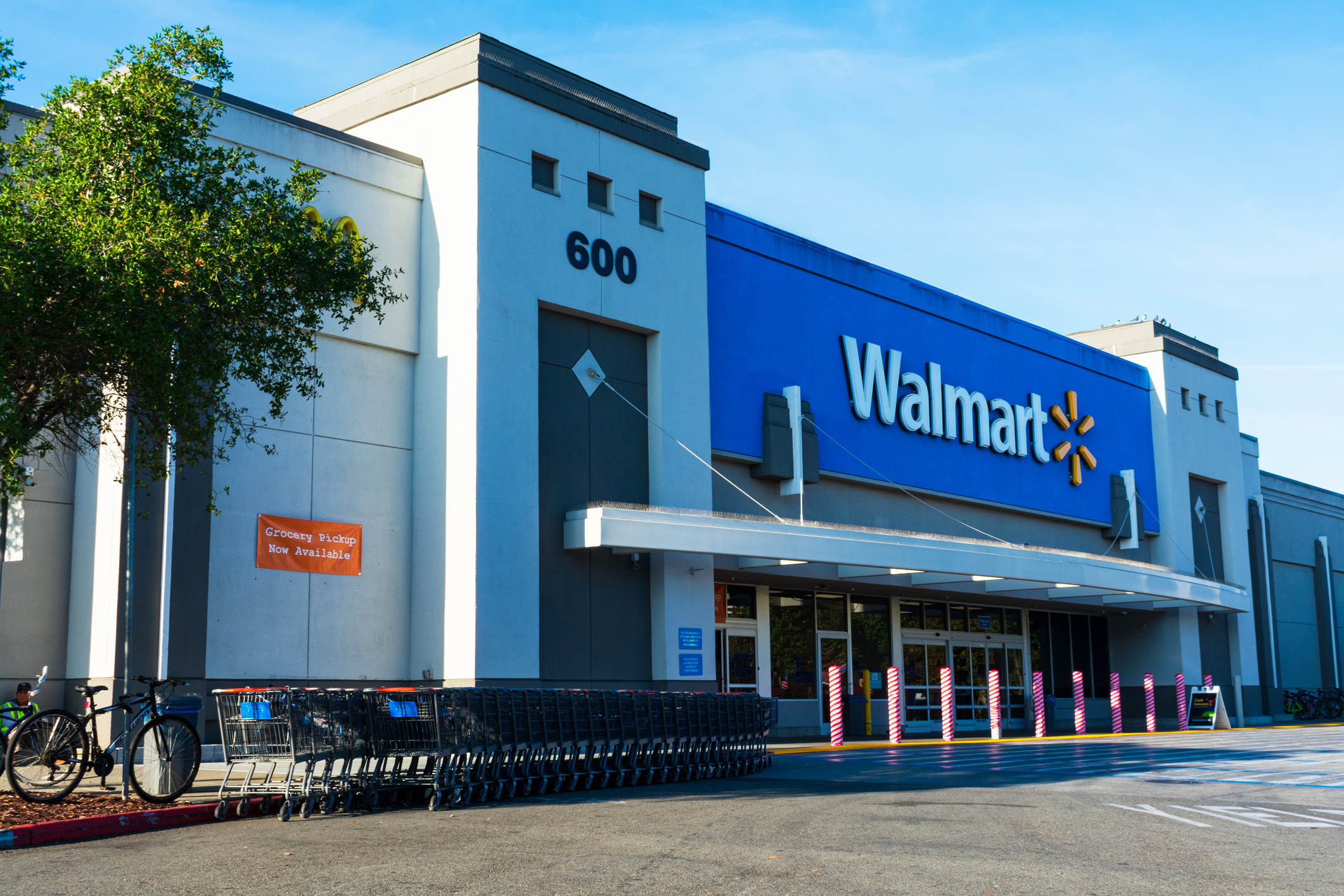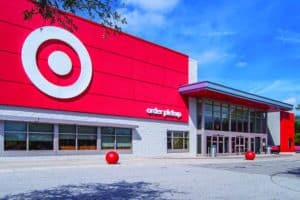
iStock.com/Michael Vi
January 29, 2024
Should Walmart Have Closed Store No. 8?
Walmart has revealed plans to close Store No. 8, its internal startup incubator that launched in 2017 to help catch up to Amazon’s online business. The closure is seen as a way to reduce costs while enabling innovation to shift to local teams.
Store No. 8, launched just after the Jet.com acquisition, was designed to test innovations over three-to-five-year cycles via partnerships while also serving as a tool to recruit tech talent. The name refers to an early Walmart location in Arkansas where co-founder Sam Walton tried out new concepts.
Some ideas incubated inside Store No. 8 have been widely adopted, including online delivery into shoppers’ homes and shopping via text message, while others, such as the Jetblack text message-based personal shopping service, were scrapped.
Overall, the unit focused on the following areas: health and wellness; social commerce and the producer economy; sustainability and circular economy; customer experience and loyalty; the metaverse; and decentralized commerce.
Supported by Store No. 8-related investments in curbside pickup and delivery, online sales in the Walmart U.S. division reached $53.4 billion in 2023 from $15.7 billion in 2019, according to Statista.
In an internal memo detailing Store No. 8’s closure attained last week by the Wall Street Journal, however, Walmart CFO John David Rainey said the retailer had “graduated capabilities from this operating approach that are now fully embedded in our organization.”
He added that nearly 300 Store No. 8 workers have moved to other internal jobs. Rainey stated, “The responsibility to shape the future of retail is now shared by all segments.”
Walmart said in a media statement, “When we stood up Store No8, it was the right decision at that time. Since that time, we’ve stood up Global Technology, Product and Design organizations that work alongside the business to innovate with speed — and the responsibility to shape the future of retail is now shared across the company.”
Scott Eckert, who led the unit, will leave the company.
Walmart said in 2022 that it planned to expand its global tech team by more than 5,000 employees that year, and today it continues to aggressively invest in tech, including announcing this month a GenAI-related partnership with Microsoft. However, Walmart last year closed three tech hubs in Austin, Texas, Carlsbad, California, and Portland, Oregon, and recently indicated it planned to focus on reducing expenses amid cautious consumer spending.
Discussion Questions
Has the need for an in-house tech incubator become less relevant for Walmart, or can innovation be driven faster within a specific unit like Store No. 8?
Does the closure appear to largely be a cost-cutting move?
Poll
BrainTrust
Ricardo Belmar
Retail Transformation Thought Leader, Advisor, & Strategist
Neil Saunders
Managing Director, GlobalData
Dave Wendland
Vice President, Strategic RelationsHamacher Resource Group
Recent Discussions








Walmart is now a very different business to when Store No. 8 was first established. It is far more digitally savvy, it is nimbler, and it is a lot more innovative at all levels. It has also, by and large, dropped the obsession of catching up to Amazon and is focusing on its own strengths and opportunities. Walmart is also now less focused on buying other businesses to add capabilities and is much better at developing them in-house. As such, it can be argued that Store No. 8 is no longer needed as a stand alone entity. That said, innovation is still critical and, fortunately, Walmart has built this culture into a lot of other areas of its business. Good ideas should come from across the whole of Walmart and, corporately, the company is now in a better position to incubate them and carry the best ones forward.
Excellent point.
Thanks Gary!
Well-articulated perspective. Walmart’s evolution into a more digitally savvy and innovative business, combined with a shift away from obsessing over Amazon, diminishes the need for Store No. 8. The writer astutely highlights Walmart’s improved in-house development and a corporate culture fostering innovation.
While only Walmart insiders can speak to the true motivations behind this decision, on the surface it does appear to be merely cost-cutting. Notwithstanding the high cost of operating these innovation centers, if it’s truly a cost cutting exercise, then the decision is perplexing. While it’s fair to say that innovation can be driven from other areas in the enterprise, having a tech-focused/innovation incubator just seems to make sense for an organization the size and scale of Walmart. Is the need for innovation any less than it has been over the last several years? I’d argue that it will be even more important as various forms of AI are operationalized and expanded. This is just one of those announcements that makes you say, ‘Hmm?’
Based on the limited description provided here – and I’m having a hard time picturing exactly how it functioned …was it in any way really a store? – it sounds like it was designed for a limited life-span, and that span has been reached. (A better question might be “why should it stay open?”) As for the polling question, if the whole point was simply to test ideas, I don’t think it makes sense to call any of them “failures”; some ideas were likely found unviable, but to me a failure is something actually launched with the expectation it will work.
To your comment regarding “failure”… “I HAVE NOT FAILED. I’VE JUST FOUND 10,000 WAYS THAT WON’T WORK.” – THOMAS A. EDISON.
Store No 8 served its purpose – to test ideas and innovations. Many have been incorporated into Walmart’s business while others did not continue. While they can be considered failures, Walmart learned from them nonetheless and that is the point to innovation. Innovation means trying radical new things with the hope that some will work, while knowing that investments will be made in areas that ultimately fail – and that’s ok. Store No 8 fulfilled this promise. Walmart is a very different organization now than when they established Store No 8 and base don’t he information made available it seems Walmart has successfully incorporated the components that drove innovation into other mainstream areas of the business. Adopting an innovation mindset across the Walmart business will serve them better than a dedicated innovation lab in the long term.
I don’t beleive Walmart is getting out of the innovation business. They still have innovation centers in Bangalore, Gurgaon, Chennai, India, Costa Rica, Canada, Israel, and Mexico. In the U.S., they are Bentonville, Charlotte, Dallas, Hoboken, Reston, Silicon Valley, and Seattle. We are hardly talking about money savings and cutbacks.
What we can assume is #8’s time has come to close. Technology and innovation are not static. What is right for 2017 may not be right for today or tomorrow.
I think the store did its job, as evidenced by Walmart’s performance during the pandemic. Now it’s time to fine tune and improve. Also, Amazon’s weaknesses have really been exposed,as have Walmart’s strengths. The operative word is stores. And the employees within them. Now it’s all about process improvements.
Is Store No. 8 closing…or evolving? It’s not like the mission of innovation is closing. Walmart built a great platform and mentality of innovation, and Store No. 8 delivered on it’s early assignment. And it sounds like the ROI on the investment in Store No. 8 has been tremendous. So I don’t interpret this so much as cost reduction as I do a reassessing of investment opportunities. They reassigned 300 employees and have expanded the tech team by 5000 employees. Nothing timid about that. Being cautious about spending in the face of tightening consumer spending is the prudent thing to do. Focusing on “closing” doesn’t give Walmart credit for the broader picture of how they are executing in a market that is signaling an uneven terrain ahead.
Look at how far Walmart has come since it launched Store No. 8! It has evolved into the most omnichannel retailer in the world and it keeps investing in innovation.
Store No. 8 made sense as a way for Walmart to test innovations and manage their adoption and growth.
Times have changed. Now that Walmart is more mature and proficient with technology it can redeploy Store No. 8 talent and resources into new priorities.
I really just saw this as a type of re-org. This represents to me that innovation is a responsibility to be shared throughout the company. Perhaps implementation will be easier when led in a more integrated way.
I see this as more of a restructuring. Walmart pivoted successfully during Covid to stand up more robust digital experiences for their customers. They’ve done a great job meeting Amazon’s challenges and continue to innovate with changing offerings, more digital services, and better LOS for their home delivery and store pickup. Store No. 8 was a valuable incubator when many of these capabilities were still being developed, and Walmart was still getting comfortable with innovation in how they reached their customers. That’s no longer the case; innovation is at the core of what they do; they understand the digital channel, they’ve certainly learned as much as they could from the Jet acquisition, and they successfully compete with Amazon. Store No. 8 is no longer needed.
Absolutely, I agree. Walmart’s pivot during Covid showcased their agility and strengthened digital experiences. With a solid grasp on innovation, the relevance of Store No. 8 diminishes. Well-observed insights!
Walmart leveraged Store #8 to the point where it became irrelevant to the testing and roll out of technology. So, sure, cost cutting, but more importantly I think WM learned what could be learned and then shut it down.
Using Store No. 8 as an incubator has proven VERY successful for Walmart. I think their closure of the physical location and decision to focus on other methods of innovation is prudent. However, I would not be surprised to see other incubator Walmart stores spotting our landscape in the very near future.
Walmart has decided to shut down its in-house startup incubator, Store No. 8, as a cost-cutting measure. The closure reflects a shift towards integrating innovation into local teams. The company claims that capabilities developed through Store No. 8 are now embedded organization-wide. While some ideas succeeded, the closure suggests Walmart may now prioritize a more decentralized approach over a specific innovation unit.
Walmart has shifted from an obsession with catching up to Amazon, now concentrating on leveraging its own strengths and opportunities. This strategic shift reflects a more self-reliant approach and a commitment to nurturing internal strengths.
If Store No. 8 has passed the point where it provides learning instead of incremental costs, it’s time to move on. The pandemic probably forced Walmart to move faster on the e-commerce and Omnichannel front than a single laboratory store could ever accomplish.
Luminate and Walmart Connect are the new Store No. 8. Far more advanced and fully monetizable.
While innovation has definitely not vanished at Walmart. The usefulness of innovation at a single store level has shifted. Clearly per Raineys comment, “[innovation] capabilities … are now fully embedded in the organization” For a company the size of Walmart, innovations must be must wider, larger more substantial to impact the $600B+ of revenue each year. A single typical Walmart store can only drive up to ~$70MM per year, which is a mere 0.01% of business. The only way for innovations to be meaningful is mass distribution across many stores or at a centralized point in their systems – such as distributed data across logistics. Even 10x returns on innovations at Store #8 wouldn’t be moving the needle more than a tenth of one percent for Walmart… Embedded distributed innovation drivers across large swaths and regions are the way to move forward.
A few years from now, analysts and researchers will point to the decision to close Store No. 8 as the first telltale sign of Walmart’s innovation decline.
Walmart CFO John David Rainey emphasized that the capabilities that grew out of Store No. 8 were “now fully embedded in our organization.” In their press release, the company admitted that the future of retail innovation is “now shared across the company.” Innovation and capabilities are not end states that once achieved, allow you to declare victory and move on.
Embedded innovation is oxymoronic. It rationalizes headcounts and brings talent closer to the nexus of operational and customer challenges. While it emphasizes exploiting existing technology and capabilities, it dramatically limits the exploration horizon of teams, departments, and the entire company.
This is the wrong decision at the wrong time for the wrong reason.
Hmmmm…you may have changed my view a little. Scaling innovation is one thing, but that doesn’t necessarily make it evolution. There was a time when innovation labs would have been called “skunk works”. And nobody would have said, “OK, time to embed the skunk works back into the regular businesses.”
I will take the word of CFO John David Rainey that Walmart has “graduated capabilities from this operating approach that are now fully embedded in our organization.” I would have zero reasons to doubt that, especially since the Store #8 concept was established at a much earlier time. -Db
As a former Walmart and Sam’s Club associate, I know of the company’s drive to continually innovate and improve every aspect of its business. From Mr. Sam through to Doug McMillon today, change and continuous improvement are an integral part of the company culture.
This change reflects a natural evolution in how innovation is conceived, nurtured, developed, and rolled out to the business. There was most certainly a need to develop this stand-alone entity to foster innovation when Store 8 was created, but the recent announcement that innovation efforts are now being integrated into business units suggests that those efforts have sufficient momentum to continue under the leadership of individual business unit leaders.
It will, of course, be important for those leading these efforts to periodically compare notes, share best practices, and transplant great ideas and great people from one area of the business to another. My efforts, both as a merchant and as an eCommerce leader, were accelerated greatly during my Walmart career when I collaborated with my peers in other areas of the business.
I’m excited to see how this evolution in the business will bear fruit for the company, for shareholders, and ultimately for customers & members in the years ahead.
#thecustomeralways #walmart #samsclub #store8